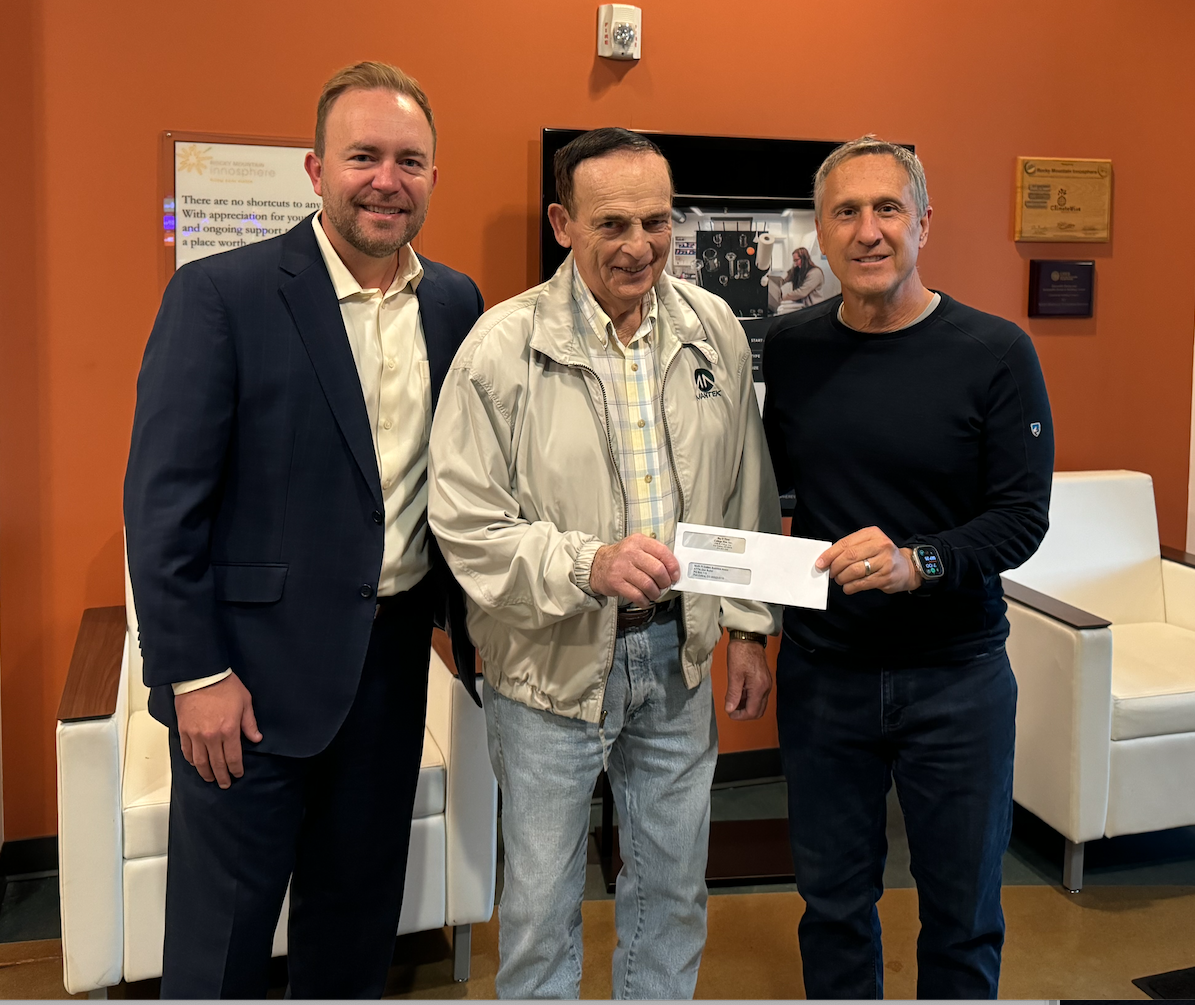Richardson created business that runs without him
2019 Bravo! Entrepreneur - Lifetime Achievement

FORT COLLINS — Curt Richardson hasn’t been in his office for over a month.
Now Otter Products LLC’s chairman of the board and its chief vision officer, Richardson spends most of his time at his Wyoming ranch and pursuing other interests besides looking at the big picture at OtterBox, one of the world’s largest phone case makers.
He believes that the company doing well without him is a sign that his years of obsessing over Otter’s workplace culture and how the individual systems of the business work together have paid off.
SPONSORED CONTENT
Richardson is the recipient of BizWest’s Bravo! Entrepreneur lifetime achievement award for 2019 for creating one of Fort Collins’ most prominent companies.
Richardson, 60, switches his demeanor between strategic eloquence and a frank bluntness when he spoke with BizWest about his career.
His office is filled with sculptures, scale models of planes and boats and a lot of books on the walls, while several boxes filled with products are stacked in the corner leading to his balcony. His appearance clashes somewhat as well: his trimmed white goatee and hair, tortoise shell glasses and sport coat contrasts with his jeans, a green, blue and brown-striped shirt and a pair of boots with bright red laces.
Richardson described himself as a child with a money-making drive that began early in life, and he liked to work with his hands. He found the industry on which he would start a worldwide business when he stepped into shop class in high school.
One word: plastics.
“I walked into a machine shop, and I knew what I wanted to do,” he said. “I wanted my own business and my own machine shop.”
A few years of leasing molding machines later, a 21-year old Richardson bought out what was Genie Tool & Plastic in 1981 and renamed it after himself. That company grew through the decade to add injection molding and importing to the business.
It’s a difficult ask for anyone in their early 20s to take on a complicated business like that. Richardson didn’t stop to think about how his lack of formal business education or a college degree could hurt his ability to run his company. He attributed that to not being afraid to fail, learning the “blocking and tackling” of how businesses operate and a shot of youthful recklessness.
“It was a natural thing for me to be able to go out and take risks, and it didn’t bother me a bit,” he said. “Actually, I think life would be very boring without it.”
OtterBox’s origin story is well-worn in the region’s business community: Richardson was playing around with some designs in his garage in the early 90s when he built a plastic box to keep some items dry in the outdoors.
The timing was excellent: personal digital assistants were foreshadowing the rise of the smartphone industry. A self-described electronics geek, Richardson and OtterBox started to build cases that could keep those devices waterproof.
OtterBox got off the ground, Richardson said, because he and his team saw the opportunity at their feet.
“There’s always an element of luck in anybody’s life,” he said. “The difference is do you see the luck and capitalize on the luck, or do you just let it go by?”
The greatest challenge to the phone case company was in the mid-2000s. The phone of choice was the Blackberry, and Apple had yet to release its iPhone in 2007, which would revolutionize the mobile market. OtterBox was making only waterproof cases at the time, which didn’t appeal universally to consumers, and it had yet to develop its first protective cases.
OtterBox was a company searching for its identity.
“It was like, wow, just, where are we and who are we?” he said. “We weren’t acting in, I would say, a strategic manner.”
It’s around this time Richardson sought the advice of a business coach who followed the “E-Myth” philosophy of building a business as a series of systems that don’t need a founder or CEO’s labor to keep going.
“For years I had on the bottom of my monitor, ‘If it won’t run without you, you blew it,’” he said.
That coaching is part of what led to Richardson’s obsession with creating a positive company culture. He wanted Otter to be a place where his employees could apply their natural talents in a rewarding way, and he believes he accomplished that.
He follows the golden rule when it comes to employees, and tries to give underperforming workers every chance to correct a mistake or a behavior. But Richardson talks about people who don’t fit a company’s culture like he would a disease that threatens the entire system.
“It’s like getting on an airplane. If the guy in the back seat has the flu, pretty soon everyone in the frickin’ tube has the flu,” he said. “…So your culture has to be strong enough, and your hiring systems better be great to be able to filter that out. But if it gets through, you want to be able to kill that infection pretty quick.”
That philosophy led him to change executives in the company’s C-Suite after he quit as Otter Products CEO in 2013 to become its board chairman, including the resignation of former CEO Peter Lindgren after 15 months at the helm.
Otter Products, now led by CEO and president Jim Parke, has about 1,200 employees worldwide, and Richardson estimates the company is looking to pull in about $750 million in revenue in 2019. The company accounts for half of phone case sales in the U.S. today and has a Hong Kong office working to establish a foothold in the Africa, Middle East and Asia (AMEA) market region where smartphone sales are expected to grow.
It’s also diversifying away from phone and electronics protection into coolers and its planned “Livri” line of reusable food shipping containers. He believes the biggest reason Otter Products has survived into a multi-million dollar company is that he had a clear idea of what he wanted out of life and applied it to every segment of how he ran the business.
If someone doesn’t answer that question, Richardson said in his pattern of switching between eloquence and bluntness, they won’t be nearly as fulfilled by their life in the office or outside of it.
“I mean, how many people have you heard of who are 50, 60 years old and they’ve been in a career their whole life and they hate it, and they did it because their dad or their mom wanted them to do it?” he asked.
“Well, that sucks.”
“Wouldn’t it be great if at 21, you at least started asking yourself that question, what do I really want?” he continued. “I don’t think many people ever do that; they don’t give themselves permission to do that. I know it’s super important for that to happen, especially for a successful business for people to really follow and believe in that business.”
FORT COLLINS — Curt Richardson hasn’t been in his office for over a month.
Now Otter Products LLC’s chairman of the board and its chief vision officer, Richardson spends most of his time at his Wyoming ranch and pursuing other interests besides looking at the big picture at OtterBox, one of the world’s largest phone case makers.
He believes that the company doing well without him is a sign that his years of obsessing over Otter’s workplace culture and how the individual systems of the business work together have paid off.
Richardson is the…




